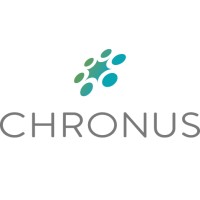What is mentoring software?
Mentoring software is an application that helps companies assign, manage, and analyze the success of their mentorship programs. Most of these software products use algorithms to match mentors with suitable mentees, with customizable elements to help organizations make values-driven matches. Mentoring software also aligns with learning management to centralize mentor and mentee resources and performance management capabilities to track the success of the mentoring program.
We reviewed 14 top onboarding software solutions and narrowed our list to the best of the best:
What is the best mentoring software?
mentorcliQ: Best for user experience
Pros
Cons

Together: Best for flexible mentee management
Pros
Cons

Qooper: Best for customization
Pros
Cons

Chronus: Best for diversity and inclusion
Pros
Cons

PushFar: Best for career development
Pros
Cons

Find your new mentoring software
How to choose a mentoring software for your organization
When it comes to determining which mentoring software tool is best for your organization’s needs, you should first decide what factors should be prioritized to reach your organizational objectives. For example, if your organization needs to refine its member onboarding, it can be helpful to go with a system with features that can assist in the recruitment process. If your organization would benefit from improving its employee retention, then software systems with engagement-tracking features can be helpful.
Software systems can allow you to track the progress of many different aspects and help you gain insight into what decisions should be made to promote the growth and improvement of an organization. By determining an improvement focus area for facilitating your organization’s development, you can decide what features would be most helpful and which software tools would provide them.
What are the major features of mentoring software?
Mentoring software comes with various features that help you plan, track, and analyze the progress of your mentorship strategy and ensure the success of each mentee. Some of the key features of the best mentoring software include goal setting and tracking, reporting and analytics, content libraries, engagement tracking, and third-party integrations.
The business impact of workplace mentoring programs
Whether through formal programs or informal coaching, mentoring guides and provides valuable information to members of an organization. Effective mentoring involves a more knowledgeable or experienced group or individual guiding other individuals and helping them reach their goals by providing advice or training. Many different organizations often utilize this practice to promote personal or career development, such as with educational institutions or workplaces.
Mentoring can benefit the development of the mentor, the mentee, and the organization as a whole. However, proper mentoring involves strategic planning and resources, and the incorrect implementation of these factors can be detrimental to the organization. It is possible to gain the full benefits of mentoring in an organization by using virtual mentoring programs.


